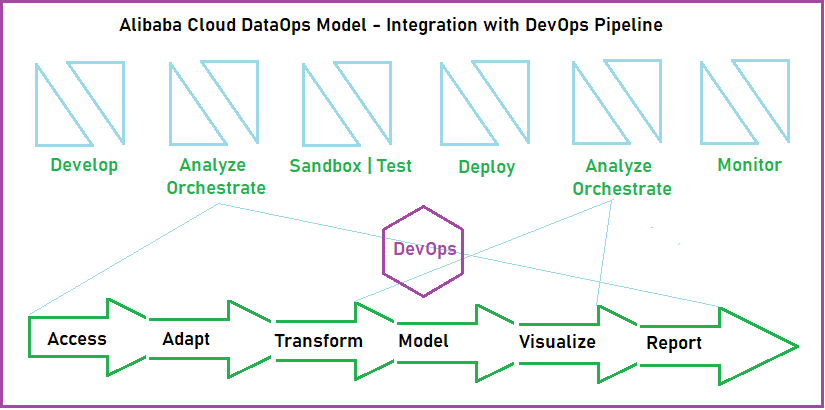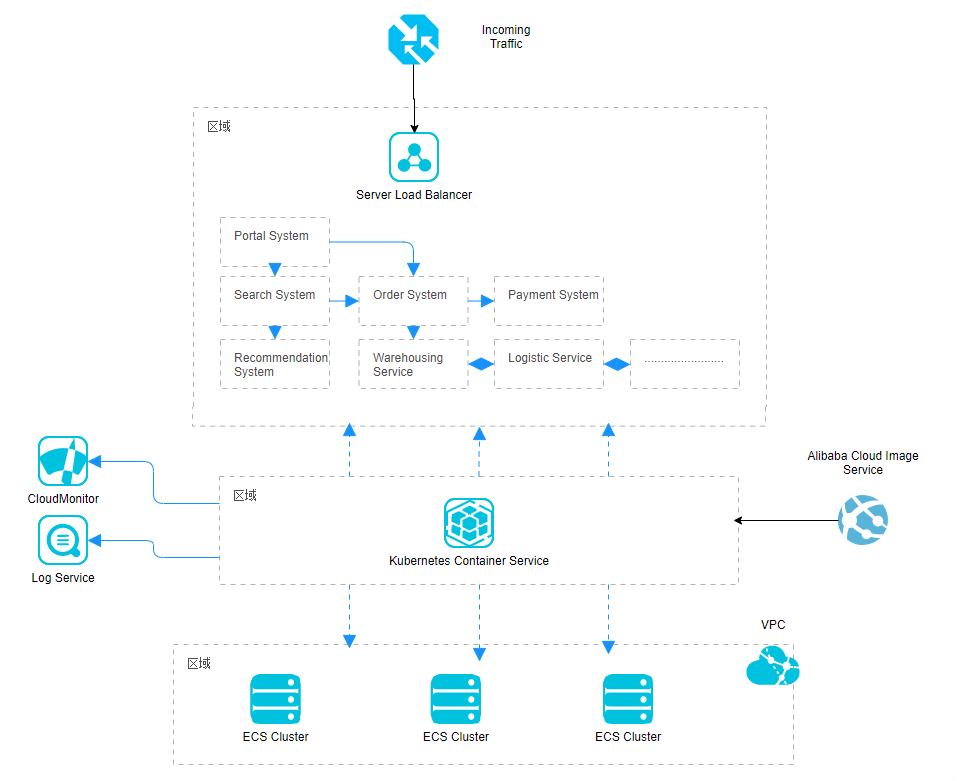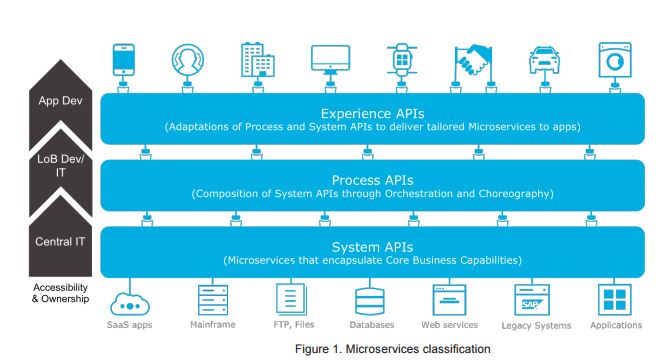By Shantanu Kaushik
In the previous article of the series on DevOps trends to look out for in 2021, we discussed about DevSecOps and how security will greatly influence DevOps practices in 2021. We also talked about how we need to setup the fundamentals for security practices to build upon in the coming decade, or at least half decade. The previous article also mentioned how DevOps will witness a significant shift in 2021.
It is now 2021 and we have to align ourselves with industry specific practices to make sure DevOps pipeline expands as much as it can to accommodate more and better practices to enhance value extraction from a business practice. Let us move forward and discuss how analytics, automation, and change in development and operations scenarios can help extract more value out of a DevOps pipeline.
Until now, DevOps trends have helped business development and strategy planners to come up with a baseline to predict how DevOps solutions will respond to customers' needs. In 2021, we will witness a massive surge in theory-based DevOps deployment scenarios. This has to be among the biggest of transformations that we will come across, and it will bring along a transformation that will be all set to deliver massive value to businesses.
Making the shift to integrate artificial intelligence (AI) into the complete software delivery cycle can make it more efficient in extracting better value from the business. A cross-management method will have to be devised to maximize business and technological side to align properly.
DevOps integration with AI and a certain control over business practices to achieve excellence and to extract maximum value will push the DevOps teams to collect and utilize metrics from the business itself. This, along with the metrics collected from DevOps architecture, will greatly influence the total value extraction from a practice.
As we discussed above, DevOps and AI can provide some critical metrics about business and architectural operations. The fundamentals of Artificial Intelligence (AI) and Operations applied together are known as AIOps. From 2021 onward, enterprises will experience high demand from customers for customized solutions. Business and operations feedback will become a highly critical resource, and AIOps will be the answer.
With AIOps + DevOps, alongside DataOps, organizations can begin to leverage this critical resource of metrics collection. Based on data, significant improvement towards the automation of processes can be formulated. Automation helps with removal of unnecessary human intervention and hence accelerates the entire process of delivery.
This automated operational feedback by leveraging AIOps, can allow organizations to sift through large amounts of metrics data and enable the developer team to work towards an even better application release cycle. This will further accelerate the DevOps pipeline including continuous testing, continuous integration, and continuous delivery.
AIOps drives automation and works to provide significant improvement to IT operations. Organizations will further integrate it with DevOps to explore additional possibilities to solve the complexities associated with multi-cloud. We will discuss more on automation within this article.
DevOps has already and will continue to integrate DataOps for better value extraction and also for the correct form of digital transformation. Collaboration between business administrators and DevOps teams will help to align goals of both businesses and DevOps teams. DevOps delivery will accelerate further as DataOps practices will get adopted within organizations.

Utilizing Data Analytics to embed more customer satisfaction into the software development lifecycle is the key to DevOps success in 2021 and beyond. We think of it as an 'optimal business prioritization'. When a business solution is driven to achieve what customers want, the risk of failure goes down. With analytics, you can work on impact assessment, modelled patterns, and also cut down on time-taken to detect and fix issues.
Data Analytics and big data processing are the key factors that will induce value into the whole pipeline. DevOps optimizes the overall workflow, and organizations will be designing a practice that is more focused on the value side of things. Through properly managing value management with DataOps, DevOps teams will be able to adapt and deliver better performance in delivery with real-time customer feedback being the pivot.
With expansion, organizations will utilize automation within microservices configuration management and for version control. Automation at this level will enable DevOps teams to make decisions based on mission critical data, which is collectively the configuration management data, applicable to various microservices deployed in different clusters. Let us look at Alibaba Cloud ACK flow:

Deploying containers with Kubernetes will take a lot of configuration management as multitude of services come together to constitute a bigger service. Alibaba Cloud container service for Kubernetes takes care of a lot of complexities, however, 2021 should come along with a shift towards a more advanced and upgraded supporting tools based on DataOps and AI to manage complex value-based deployments. Let us look at how microservice classification works within Alibaba Cloud as of now.

Automation with microservices enables you to control the application releases to the end users. Changes in configurations and managing versions automatically will considerably lower the risk, if not eliminate it completely, from a microservice implementation.
In 2021, DevOps will get more advanced automation tools to generate a better accelerated output across stages within the DevOps pipeline. Automation tools will provide the DevOps pipeline the well needed takeover of the error-prone tasks to enable far greater productivity.
2021 should see a shift towards implementation of automation to cut down on time taken for testing and other stages that prove vital towards maintain a cohesive flow of tasks. Automation within the code review cycle could be another front where automation will prove vital for better validation.
"Shift Left" will be the approach in 2021 and beyond, where developer teams will be the part of the plan that focuses on where the DevOps practices are heading. We have already talked about cross-functional teams with teams taking on responsibilities from other teams to have lesser-dependencies and more control over strategies.
Here, the technical flow of an organization has to be a guided one, and who could be better than the developer team for this? In 2021, DevOps teams will be the guide in the data strategy of an organization. This will certainly enable a far more advanced data management, tool selection, and an increase in mobility of workloads.
In 2021 and beyond, business applications will determine business success or failure. Developer teams and business teams will embed to form a sort of DevBizOps scenario. This scenario is indeed called for, as one thing the recent pandemic made us learn is the criticality of business application that works as the backbone of some of the most complex systems out there.
With a new normal in place, the industry is all set to adopt the remote work, or "work from home" culture. This culture is all set to define how businesses work to extract value out of a practice, with a constraint like this. Physical presence will definitely be required at some point in the cycle, but automation will be the key to cut down on human intervention to adapt to the new normal
DevOps is evolving and shows direct signs of collaboration with other micro-technological innovations like DataOps and AIOps. These small yet significant value based prospective(s) have the capacity to lead organizations towards adopting technologies that normally they wouldn't consider.
With the right tools and the correct form of automation, the kind of automation that enables a more autonomous approach for DevOps, will be adopted by most organizations. Customer satisfaction-centric business applications and delivery methodologies will capture the market trend. Successful DevOps teams will be the ones who will improve their end-to-end processes.
These teams will be the ones who will enable an automated approach to continuous testing and implementation of DevSecOps, along with distribution of duties across workflows.
In 2021 and the future, DevOps will continue to be the choice of deployment option in an Enterprise marketplace. Rapid development to release cycles, reliable, scalable, and high-performance delivery is what DevOps offers. Microservices infrastructure will get more focus and will allow organizations to build enterprise solutions with lesser dependencies and management costs.
Using Beats to Visualize Redis Monitoring in Alibaba Cloud Elasticsearch

2,593 posts | 792 followers
FollowAlibaba Clouder - December 31, 2020
Alibaba Clouder - December 25, 2020
Alibaba Clouder - February 9, 2021
Alibaba Clouder - March 30, 2021
Alibaba Cloud Community - March 8, 2022
Alibaba Developer - November 17, 2021

2,593 posts | 792 followers
Follow Platform For AI
Platform For AI
A platform that provides enterprise-level data modeling services based on machine learning algorithms to quickly meet your needs for data-driven operations.
Learn More Epidemic Prediction Solution
Epidemic Prediction Solution
This technology can be used to predict the spread of COVID-19 and help decision makers evaluate the impact of various prevention and control measures on the development of the epidemic.
Learn More Alibaba Cloud Flow
Alibaba Cloud Flow
An enterprise-level continuous delivery tool.
Learn More DevOps Solution
DevOps Solution
Accelerate software development and delivery by integrating DevOps with the cloud
Learn MoreMore Posts by Alibaba Clouder